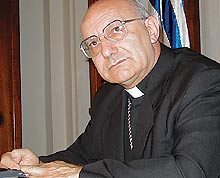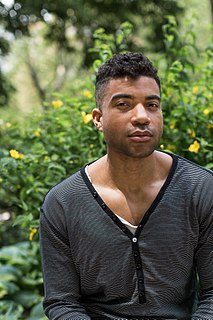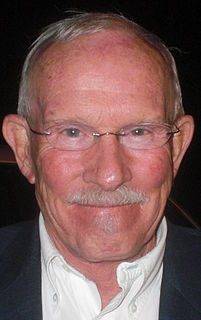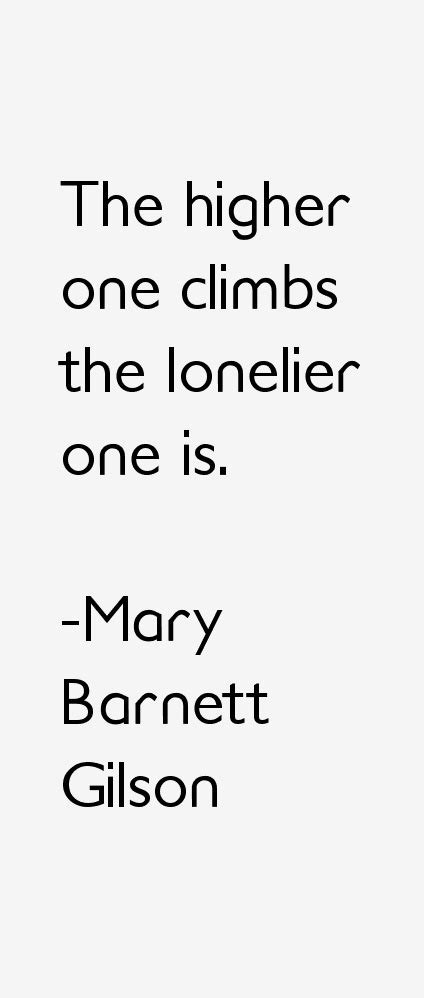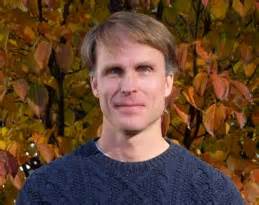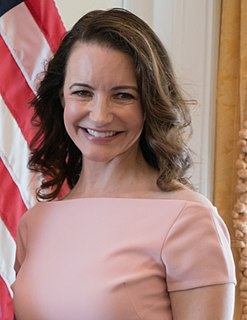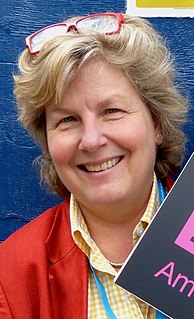Top 877 Professor Quotes & Sayings - Page 15
Explore popular Professor quotes.
Last updated on April 16, 2025.
During World War II, Joseph Stalin was once asked by an American writer, according to Professor Dean Russell, how he could justify conscripting all the property of all the people for use by the government to fight the war. Stalin answered by asking why they considered it more immoral and illogical to conscript lifeless property than to conscript life itself, as was being done in the United States and all other capitalistic countries. His American challenger had no answer, because there was no answer.
I am not a conservative but I have spoken out for years against the staggering amount blind hatred directed at black conservatives by liberals. Liberals are shockingly quick to demean and dismiss brilliant black people like Rice, Carson, Supreme Court Justice Clarence Thomas, U.S. Senator Tim Scott (R-SC), Professor Walter E. Williams and economist Thomas Sowell because they don't fit into the role they have carved out for a black person in America. Black Americans must be obedient liberals on all things or risk being called a race traitor or an Uncle Tom.
In 1945 J.A. Ratcliffe ... suggested that I [join his group at Cavendish Laboratory, Cambridge] to start an investigation of the radio emission from the Sun, which had recently been discovered accidentally with radar equipment. ... [B]oth Ratcliffe and Sir Lawrence Bragg, then Cavendish Professor, gave enormous support and encouragement to me. Bragg's own work on X-ray crystallography involved techniques very similar to those we were developing for "aperture synthesis", and he always showed a delighted interest in the way our work progressed.
At some future period, not very distant as measured by centuries, the civilised races of man will almost certainly exterminate and replace throughout the world the savage races. At the same time the anthropomorphous apes, as Professor Schaaffhausen has remarked, will no doubt be exterminated. The break will then be rendered wider, for it will intervene between man in a more civilised state as we may hope, than the Caucasian and some ape as low as a baboon, instead of as at present between the negro or Australian and the gorilla.
Quietly Sophronia added, "And the soot on my dress, sir?" "I didn't see anything." Professor Braithwope smiled down at her, showing a small hint of fang. Sophronia grinned back. "I'm glad we understand each other, sir." The vampire looked out into the night. "This is the right finishing school for you, isn't it, whot?" "Yes sir, I think it might very well be." "A piece of advice, Miss Temminnick?" "Sir?" "It is a great skill to have friends in low places. They, too, have things to teach you." "Now, sir, I thought you didn't see any soot.
Since my first discussions of ecological problems with Professor John Day around 1950 and since reading Konrad Lorenz's "King Solomon's Ring," I have become increasingly interested in the study of animals for what they might teach us about man, and the study of man as an animal. I have become increasingly disenchanted with what the thinkers of the so-called Age of Enlightenment tell us about the nature of man, and with what the formal religions and doctrinaire political theorists tell us about the same subject.
I have chosen for my emblem a Star, representing the Virgin Mary, and the Eucharist. Those who know me as a professor of theology will remember my passion for the Eucharist from our classes. Blessed be God for this madness... We must live our commitment to society steeped in the Eucharist. We must take the Eucharist to the streets, both in the heart of the city and on the outskirts, to the poor neighborhoods and to hospitals... In order to obey the Resurrected Christ, I dare say with Pope John Paul II: 'Open wide the doors of your heart to the Holy Spirit.'
Every time I'm in the studio, I always think of my professor in undergrad. He was like, "There are so many artists in the world. If you're going to be an artist, make sure you have something to say. Don't just be an artist and put out bullshit. Have something to say." I guess that would be my philosophy and something I think about all the time. Every day when I'm in the studio I hear him and I see him. I remember him saying it in class. So that's something that I always want to make sure I have: I'm saying something with the work.
Consider him in his highest incarnation: the university professor. What is his function? Simply to pass on to fresh generations of numskulls a body of so-called knowledge that is fragmentary, unimportant, and, in large part, untrue. His whole professional activity is circumscribed by the prejudices, vanities and avarices of his university trustees, i.e., a committee of soap-boilers, nail manufacturers, bank-directors and politicians. The moment he offends these vermin he is undone. He cannot so much as think aloud without running a risk of having them fan his pantaloons.
In academic life, false ideas are merely false and useless ones can be fun to play with. In political life, false ideas can ruin the lives of millions and useless ones can waste precious resources. An intellectual's responsibility for his ideas is to follow their consequences wherever they may lead. A politician's responsibility is to master those consequences and prevent them from doing harm. Michael Ignatieff, a former professor at Harvard and contributing writer for the magazine, is a member of Canada's Parliament and deputy leader of the Liberal Party.
What will happen when my heart stops beating?" Momo asked. When that moment comes," said the professor, "time will stop for you as well. Or rather, you will retrace your steps through time, through all the days and nights, myths and years of your life, until you go out through the great, round, silver gate you entered by." What will I find on the other side?" The home of the music you've sometimes faintly heard in the distance, but by then you'll be part of it. You yourself will be a note in its mighty harmonies.
Take almost any path you please, and ten to one it carries you down in a dale, and leaves you there by a pool in the stream. There is magic in it. Let the most absent-minded of men be plunged in his deepest reveries--stand that man on his legs, set his feet a-going, and he will infallibly lead you to water, if water there be in all that region. Should you ever be athirst in the great American desert, try this experiment, if your caravan happen to be supplied with a metaphysical professor. Yes, as every one knows, meditation and water are wedded for ever.
One day at Princeton, I noticed there were dead birds on the pavement between the campus buildings, where very large trees were. It turns out it was DDT. At the time, in the early '50s, no one thought DDT was dangerous to anybody but insects. I went down to the Daily Princetonian, the college paper, and tried to persuade them to do a story. They said, "Naw, there's nothing wrong." But that taught me a very important lesson. One, that newspaper people can get very jaded. Second, that you might know something, like an expert chemistry professor, you are not going to apply what you know.
...academic credentials are neither a necessary nor a sufficient condition for having your ideas taken seriously. If a famous professor repeatedly says stupid things, then tries to claim he never said them, there's no rule against calling him a mendacious idiot - and no special qualifications required to make that pronouncement other than doing your own homework.Conversely, if someone without formal credentials consistently makes trenchant, insightful observations, he or she has earned the right to be taken seriously, regardless of background.
Half an hour later, each of them had been given a complicated circular chart, and was attempting to fill in the position of the planets at their moment of birth. It was dull work, requiring much consultation of timetables and calculation of angles. “I’ve got two Neptunes here,” said Harry after a while, frowning down at his piece of parchment, “that can’t be right, can it?” “Aaaaah,” said Ron, imitating Professor Trelawney’s mystical whisper, “when two Neptunes appear in the sky, it is a sure sign that a midget in glasses is being born, Harry . . .
Today's Uncle Tom doesn't wear a handkerchief on his head. This modern, twentieth-century Uncle Thomas now often wears a top hat. He's usually well-dressed and well-educated. He's often the personification of culture and refinement. The twentieth-century Uncle Thomas sometimes speaks with a Yale or Harvard accent. Sometimes he is known as Professor, Doctor, Judge, and Reverend, even Right Reverend Doctor. This twentieth-century Uncle Thomas is a professional Negro -by that I mean his profession is being a Negro for the white man.
Howard Zinn helped us desegregate Atlanta. That was moving because he took a lot of abuse for that. He and Staughton Lynd, a fellow professor who was also from the North, stood with us. They were certainly behind us. In fact, they often stood in front of us. This had a huge impact on me. But one of the reasons I was very careful about speaking about the relationship I had with him and Staughton was because, in a racist society, if you acknowledge a deep love for and a deep debt owed to white teachers, they tend to discredit your own parents and your own community.
Good work is no done by "humble" men. It is one of the first duties of a professor, for example, in any subject, to exaggerate a little both the importance of his subject and his own importance in it. A man who is always asking "Is what I do worth while?" and "Am I the right person to do it?" will always be ineffective himself and a discouragement to others. He must shut his eyes a little and think a little more of his subject and himself than they deserve. This is not too difficult: it is harder not to make his subject and himself ridiculous by shutting his eyes too tightly.
Still, I kept writing. I had no guarantee that I would someday win awards for writing. Heavens, the only person during that time who seemed to think I could write something worth publishing was my loyal husband. But I always remembered the professor from graduate school who urged me to write and who recommended me for that first writing assignment in 1964. When I protested to Sara Little that I didn't want to add another mediocre writer to the world, she gently reminded me that if I didn't dare mediocrity, I would never write anything at all.
I was told 20% of the kids in Kosovo didn't know where their parents were. This is a dreadful problem. A woman that I was with, a doctor, had seen her house destroyed and her uncle, who was a professor, taken out and shot. She's there, anxious now, trying to build relations with the Serbs, and said that she was trying to do this, but she was underlying how difficult it is with these images in your mind. And I think that is what has caused this terrible bloodshed that occurred just days ago in relation to the Serbs that were shot. I think that there is a need for a period of healing.
The difference between you, if you consider yourself not enlightened, and an enlightened master is not that the enlightened master has more knowledge. University professors have knowledge, and many enlightened masters have very little knowledge. Jesus probably had less knowledge than any university professor alive today in terms of raw information. Even a relatively uneducated person has more information than Jesus or Buddha ever had about things, such as political things and so on.
A prejudice may be an unreasoned judgment, he [Hibben] pointed out, but an unreasoned judgment is not necessarily an illogical judgment. ... First, there are those judgments whose verification has simply dropped out of memory. ... The second type of unreasoned judgments we hold is the opinions we adopt from others ... The third class of judgments in Professor Hibben's list comprises those which have subconscious origin. The material that furnishes their support does not reach the focal point of consciousness, but psychology insists upon its existence.
When I was a little kid wanting to play music, it was because of people like Pete Johnson, Huey Smith, Allen Toussaint, Professor Longhair, James Booker, Art Neville ... there was so many piano players I loved in New Orleans. Then there was guys from out of town that would come cut there a lot. There was so many great bebop piano players, so many great jazz piano players, so many great Latin piano players, so many great blues piano players. Some of those Afro-Cuban bands had some killer piano players. There was so many different things going on musically, and it was all of interest to me.
What is Camille Paglia doing, writing that an actress as gifted as Anne Heche has the mental depth of a pancake? How many pancake brains could do what Heche did with David Mamet's dialogue in Wag the Dog? No doubt Heche has been stuck with a few bad gigs, but Paglia, of all people, must be well aware that being an actress is not the same safe ride as being the tenured university professor of humanities and media studies at the University of the Arts in Philadelphia.
I nodded. I liked Augustus Waters. I really, really, really liked him. I liked the way his story ended with someone else. I liked his voice. I liked that he took existentially fraught free throws. I liked that he was a tenured professor in the Department of Slightly Crooked Smiles with a dual appointment in the Department of Having a Voice That Made My Skin Feel More Like Skin. And I liked that he had two names. I’ve always liked people with two names, because you get to make up your mind what you call them: Gus or Augustus? Me, I was always just Hazel, univalent Hazel.
Professor Irwin Corey had some of the best timing in the world, and that is something you can't steal. He talked nonsense, not punch-lines, per se. It was a great performance thing he did and his timing was impeccable. Pat Paulsen was a master of comedy too. The Smothers Brothers' strength was not in the content, but how it was said. We had a couple of our albums, including the Purple Onion album, translated in script form. It didn't work at all. It is no wonder that writers had a hard time writing for the Smothers Brothers, because they wrote impressions, but there was something else.
A young professor I watched in action at one of our large eastern colleges used to stand with his back to the class and mumble explanations of blackboard problems. He was "let out" at the end of two years because students refused to attend his classes. He was given an evasive reason for his dismissal and he left with justifiable bitterness toward the administration. If someone had told him the truth he could have avoided this denouement. Sometimes professors go on for years without any conception of remediable faults which irritate their listeners.
[Eric]Goldman [a professor at Santa Clara University School of Law] says back in the 1990s, courts began to confront the question of whether software code is a form of speech. Goldman says the answer to that question came in a case called Bernstein v. U.S. Department of Justice. Student Daniel Bernstein who created an encryption software called Snuffle. He wanted to put it on the Internet. The government tried to prevent him, using a law meant to stop the export of firearms and munitions. Goldman says the student argued his code was a form of speech.
A very elementary exercise in psychology, not to be dignified by the name of psycho-analysis, showed me, on looking at my notebook, that the sketch of the angry professor had been made in anger. Anger had snatched my pencil while I dreamt. But what was anger doing there? Interest, confusion, amusement, boredom--all these emotions I could trace and name as they succeeded each other throughout the morning. Had anger, the black snake, been lurking among them? Yes, said the sketch, anger had.
...the prominent Egyptian government minister, university professor, and writer Taha Hussein...devoted himself to the study of pre-Islamic Arabian poetry and ended up concluding that much of that body of work had been fabricated well after the establishment of Islam in order to lend outside support to Koranic mythology.... [T]he Iranian journalist and diplomat Ali Dashti...repeatedly took his fellow Muslims to task for not questioning the traditional accounts of Muhammad's life, much of which he called myth-making and miracle-mongering.
I've been acting since I was ten years old. I had two lines in Snow White and the Seven Dwarves at the community theater I was very focused and I loved it. My parents believed in the arts and being well rounded. So I played piano and violin, I danced and acted. They never thought I would go into acting though. They just wanted a well-rounded child and it was a bit of a shock to my dad when I said "I want to go to acting school" because he is a psychology professor and was thinking of something more academic.
When I was a student at Cambridge I remember an anthropology professor holding up a picture of a bone with 28 incisions carved in it. "This is often considered to be man's first attempt at a calendar" she explained. She paused as we dutifully wrote this down. 'My question to you is this - what man needs to mark 28 days? I would suggest to you that this is woman's first attempt at a calendar. It was a moment that changed my life. In that second I stopped to question almost everything I had been taught about the past. How often had I overlooked women's contributions?
What do you have in mind after you graduate?" What I always thought I had in mind was getting some big scholarship to graduate school or a grant to study all over Europe, and then I thought I'd be a professor and write books of poems or write books of poems and be an editor of some sort. Usually I had these plans on the tip of my tongue. "I don't really know," I heard myself say. I felt a deep shock, hearing myself say that, because the minute I said it, I knew it was true.
[What Hayek] does not see, or will not admit, [is] that a return to "free" competition means for the great mass of people a tyranny probably worse, because more irresponsible, than that of the State. The trouble with competitions is that somebody wins them. Professor Hayek denies that free capitalism necessarily leads to monopoly, but in practice that is where it has led, and since the vast majority of people would far rather have State regimentation than slumps and unemployment, the drift towards collectivism is bound to continue if popular opinion has any say in the matter.
Robin Williams was an airman, a doctor, a genie, a nanny, a president, a professor, a bangarang Peter Pan, and everything in between. But he was one of a kind. He arrived in our lives as an alien - but he ended up touching every element of the human spirit. He made us laugh. He made us cry. He gave his immeasurable talent freely and generously to those who needed it most - from our troops stationed abroad to the marginalized on our own streets. The Obama family offers our condolences to Robin’s family, his friends, and everyone who found their voice and their verse thanks to Robin Williams.
Empathy - that is, caring about people and acting responsibly on that care, not just for yourself, but for others - this is something that Barack Obama understands very well. He was a professor of constitutional law at the University of Chicago for ten years. As an expert on the Constitution and on our family values, he understands very well that the country is fundamentally about caring for one another. The day after his speech, he was interviewed on CNN, and Anderson Cooper asked him what patriotism was. He said patriotism begins with caring for one another.







